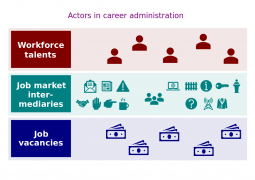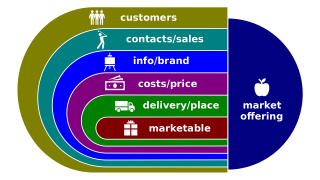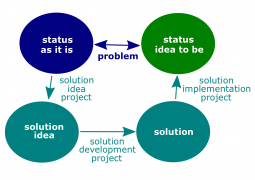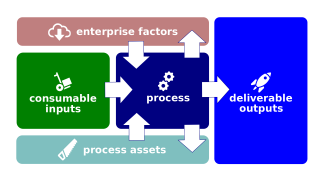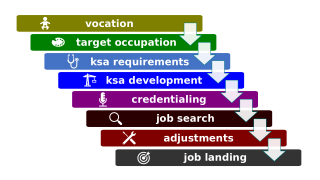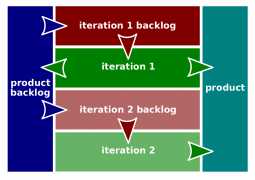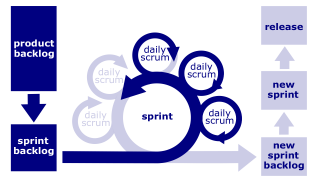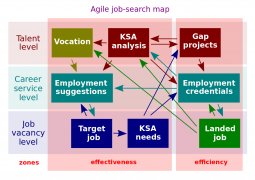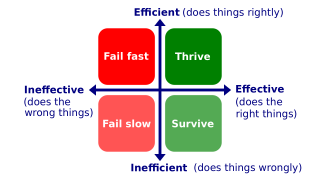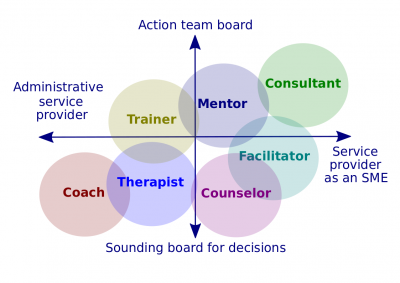Book of Careers
Introduction to Careers (hereinafter, the Lecture) is a lecture introducing the learners to career administration and related topics. The Lecture is the fourth of eight lectures of WorldOpp Orientation (hereinafter, the Orientation).
Contents
Outline
Introduction to Recruitment is the predecessor session.
Career Essentials
- Main wikipage: Career Essentials; video (3:44)
- Career. An occupation undertaken for a significant period of a person's life and with opportunities for progress.
- Vocation. A strong feeling called "calling" of suitability for a particular career or occupation.
- Job market. Some market in which employers would like to exchange their employee compensations to one's willingness to perform employer's jobs and employment candidates would like to exchange their willingness to perform employer's jobs to employer's compensation.
- Career administration. A set of endeavors undertaken in order to administer one's career.
- Administration. People, process, or period of being in charge of somebody or something.
- Business administration. Administration of a business.
Career Projects
- Main wikipage: Career Projects; video (7:33)
- Project. One or more enterprise efforts undertaken to create a unique deliverable, functional features of which are identified or can be identified before the efforts start. Any project can be viewed as a set of processes.
- Career waterfall. A sequential process where progress is seen as flowing steadily downwards through the phases. These phases may vary, but often consist of (a) discovering one's vocation, (b) suggesting one's target industry and/or occupation, (c) identifying work-related competence needed for a particular position, (d) development of one's KSAs, (e) development one's employment credentials, (f) job search, (g) adjustments to the job market, and/or (h) landing one's job in the target occupation and/or target industry.
- Agile methodology. The project administration approach of developing the deliverable in frequent iterations based on the requirements that evolve based on the results of previous iterations. The Agile methodology is characterized by frequent reassessment and adaptation of initial objectives. Instead of once-defined projects in the Waterfall model, the Agile methodology encourages continuous re-definition based on continuous feedback. This feature makes the Agile methodology instrumental in those development that are as inherently unpredictable as most of career projects are.
Job Search Map
- Main wikipage: Job Search Map; video (4:23)
- Agile job-search map. A model that describes the process of landing one's employment that rationally carries out best option valuation and maximizes the outcomes from the employment.
- Effectiveness. The degree to which an enterprise does those activities that result in achieving its goals. In other words, effectiveness is the measure of how an enterprise meets the needs of its clientele or customers.
Efficiency is doing things right; effectiveness is doing the right things. -- Peter Drucker, management consultant
- Efficiency. The degree to which an enterprise gets the most outputs from the least amount of inputs.
- Effectiveness. The degree to which an enterprise does those activities that result in achieving its goals. In other words, effectiveness is the measure of how an enterprise meets the needs of its clientele or customers.
Employment Credentials
- Main wikipage: Employment Credentials; video (10:00)
- Employment credential. (1) A qualification, achievement, personal quality, or aspect of a person's background used to indicate that this person is suitable for particular employment; (2) A document that ascertains that qualification, achievement, personal quality, or aspect.
- Self-declared credential. A credential that hasn't been verified yet or cannot be verified.
- Work sample. Some product of one's performance intended to show his or her capacity especially as an employment credential.
- Earned-in-interview credential.
- Third-party credential. A credential issued by a third party.
- Employment authorization. A government authorization of someone's eligibility to be employed. An employment authorization document is usually called a work permit.
- Criminal record. A list of a person's previous criminal convictions and, sometimes, pending charges.
- Security clearance. In the United States, an official determination that an individual may access information classified by the United States Federal Government. Security clearances are hierarchical; each level grants the holder access to information in that level and the levels below it.
- Drug test. A technical analysis of a biological specimen, for example urine, hair, blood, breath, sweat, and/or oral fluid/saliva used to determine the presence or absence of specified parent drugs or their metabolites.
- Professional credential. An employment credential that specifically refers to one's professional capacity.
- Professional license. In the United States, a designation earned by a person from a state agency that allows this person to exercise some occupation. Professional licenses usually require the university title for that profession.
- Trade certificate (also known as professional certificate, professional designation, or, simply, certification). A designation earned by a person from a professional society, certification body, or, possibly, from a private certifier to assure qualification to perform a job or task. Some trade certificates must be renewed periodically, or may be valid for a specific period of time (e.g., the lifetime of the product upon which the individual is certified).
- Work experience. Any experience that a person gains while working in a specific field or occupation, but the expression is widely used to mean a type of volunteer work that is commonly intended for young people, often students, to get a feel for professional working environments.
- Work test (also work sample test or work simulation). A sample of behavior that can be used to predict future performance in similar work situations. Its result is an employment credential that provides information relating to skills that may be difficult to assess in other ways.
- Professional award. A prize or other mark of recognition given in honor of an achievement in a specific profession.
- Profession-related performance. Any performance related in a specific profession. Examples of such performances may include delivering a lecture, serving on a board, publishing a book, writing an article, especially reviewed by peers or made in well-known settings and/or verified by a reputable source.
- Professional recommendation. A suggestion or proposal to hire somebody because of his or her professional capacity. Usually, professional recommendations include testimonies of the recommended person's achievements. Letter of recommendation refers to not only professional recommendations.
- Client feedback such as clients letters or emails
- Professional association membership. Membership in a professional association.
Directories of Credentials
- Main wikipage: Directories of Credentials; video (0:00)
- Directory of credentials. A document that lists one's credentials, most commonly, applicable to a particular employment and is usually designed to help the reader, such as a recruiter, hiring manager, customer, or any other targeted stakeholder, of the directory to navigate them.
- Résumé. Any document that a person uses to present his or her achievements and capacities. In the industry of workforce services, a résumé usually presents credentials applicable to a particular employment.
- Professional bio. A descriptive account of a person's professional history.
- Elevator pitch.
- List of professional recognitions. A general list of recognitions composed for unspecified references or a list of select ones for particular employment.
- List of educational credentials. A list of all educational credentials composed for general references or select ones for particular employment.
- List of worked projects. A list of all projects that one has worked on composed for general references or select ones for particular employment.
- List of key accomplishments. A general list of accomplishments composed for unspecified references or a list of select ones for particular employment.
- Professional portfolio. An organized presentation of those individual's credentials that demonstrate his or her professional achievements and capacities. The portfolios may contain educational credentials, work samples, and other employment credentials offered by a professional and/or employment candidate especially when considered for being hired.
- Working portfolio. Any professional portfolio that consists of works in progress. When those works are finished, they may be moved to more permanent assessment and/or display portfolios.
- Showcase portfolio. Any professional portfolio that is any collection of credentials that are both demonstrations of the one's abilities and platforms for self-expression.
- Electronic portfolio (eportfolio, e-portfolio, digital portfolio, or online portfolio) is a showcase portfolio accomplished in a digital form. The credentials may include input text, electronic files, images, multimedia, blog entries, and hyperlinks.
- Credentialing portfolio. Any professional portfolio that provides its viewer with one's credentials.
Workforce Service Providers
- Main wikipage: Workforce Service Providers; video (9:16)
- Workforce service provider. Any provider of workforce services.
- Career counselor. A practitioner who gives advice on a particular occupation and/or industry using counseling techniques. The counselor's goal is to support the clients in making complex decisions and facing difficult situations in career exploration, career change, personal career development, and other career-related issues within their occupational and/or industry expertise. Those practitioners whose occupational and/or industry expertise is limited may use sources such as Occupational Outlook Handbook and Occupational Information Network.
- Job coach. A practitioner who guides an employment candidate through a process of landing of employment often without any industry and/or occupational expertise in the candidate's areas of interest.
- Employment consultant. A practitioner who provides expert advice in his or her particular area of job market and/or workforce services.
- Job club. A non-profit group such as Career Network Ministry that performs as a workforce service provider.
 Career Network Ministry's logo
Career Network Ministry's logo - Government employment office. A government office that offers workforce services and, often, serves as an employment agency.
- Personal BOD. A group of key stakeholders in formulating and achieving one's career objectives. BOD refers to a board of directors in corporations.
- Employer. Any legal entity that employs one or more employees.
- Mentor. Someone who possesses a certain area of expertise and who is willing to share this expertise with another person or persons who is willing to learn from the mentor.
Introduction to Education is the successor session.
Materials
Recorded audio
Recorded video
- https://youtu.be/rWyNpyGEvJ0 (session preview)
